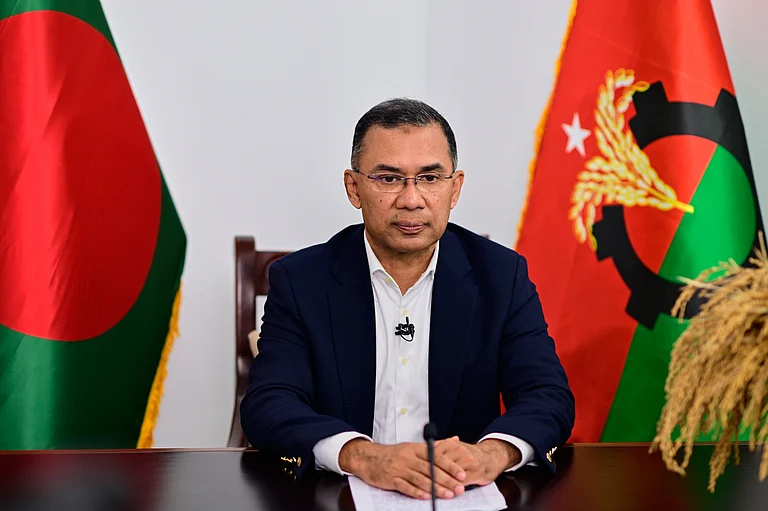“There are so many objectives and motivations driving investments by non-resident Indians (NRIs),” says Sangeet Hemant Kumar, founder of SHK Global Ventures, a Mumbai-based real estate consultancy. “While some may invest with the intention of relocating or retiring in India, others see it as a financial investment opportunity or a way to maintain ties to their homeland.”
The latest UN estimates that about 18 million of the 281 million migrants worldwide are from India. Many of the world’s largest diaspora are coming back to their ancestral homeland — a journey buoyed by the allure of thriving real estate prospects, reported asiapropertyawards.com.
“There are so many objectives and motivations driving investments by non-resident Indians (NRIs),” says Sangeet Hemant Kumar, founder of SHK Global Ventures, a Mumbai-based real estate consultancy. “While some may invest with the intention of relocating or retiring in India, others see it as a financial investment opportunity or a way to maintain ties to their homeland.”
The sweeping economic reforms of the 1990s, marked by the liberalisation of foreign exchange and investment policies, dismantled the regulatory hurdles NRIs previously encountered when attempting to acquire property in India.
More recently, the landmark implementation of the Real Estate (Regulation and Development) Act, 2016 (RERA) brought about increased transparency and accountability to the sector, benefiting both domestic buyers and NRIs alike.
In the wake of the pandemic, the contribution of NRIs to premium real estate sales has reportedly surged, more than doubling to 20 percent of all transactions. A significant number of high net-worth individuals (HNWIs), many of them NRIs, meanwhile, plan to buy luxury real estate in the next two years, according to a recent survey by India Sotheby’s International Realty.
Indeed, most observers agree that current market conditions are highly favourable for overseas investors, particularly in the upper echelons of the market. The interplay of financial pragmatism with the promise of lucrative returns is a particularly powerful motivator, especially given the current strength of the dollar against the Indian rupee.
“Global NRIs are channelling resources, drawn from hubs like the Gulf Cooperation Council countries, the US, and the UK, leveraging the stability of these economies,” explains Keval Valambhia, chief operating officer of CREDAI MCHI, a prominent real estate association. He adds that the vast majority of NRI investors continue to hail from these destinations, in addition to Australia, Canada, and Southeast Asia.
For NRIs, individual markets across the country hold their unique appeal. Major metropolitan areas like Delhi-NCR, Hyderabad, and Bengaluru continue to lead the pack. A recent joint survey by property consultancy firm Anarock and the Confederation of Indian Industry revealed that 60 percent of respondents are inclined to invest in one of these destinations.
Second-tier cities are also gaining attention due to lower property prices and the potential for higher returns as urbanisation and development expand. Coastal states such as Goa, Kerala, and Tamil Nadu, meanwhile, are experiencing heightened demand from those seeking rental income, vacation homes, and retirement properties.
“NRIs are increasingly open to newer products, such as holiday homes, student accommodations, and coliving properties,” says Ajai A Kapoor, CEO of Mumbai-based real estate firm 360 Degrees. “Overall, a balanced consideration of rental return and potential capital appreciation remains key.”
Another factor behind the post-pandemic NRI investment boom is the increasing role of technology in facilitating property purchases. The acceleration of virtual and augmented reality-driven tours during the lockdowns, for instance, made it easier than ever to search for and purchase properties from overseas.
Moreover, AI-powered algorithms have vastly improved data-driven property valuation and market analysis, while the emergence of secure long-distance transaction technology has fostered greater trust and convenience in remote financial dealings and document management.
In 2020, India became the world’s largest real-time payment market, boasting 25.5 billion annual transactions. The Unified Payment Interface, a smartphone-based system for instant fund transfers between bank accounts, has tie-ups with major NRI hubs such as Singapore, the US, Australia, Canada, Hong Kong, Oman, Qatar, Saudi Arabia, UAE, and the UK.
But beneath these economic drivers flows an emotional undercurrent. The vision of owning a piece of their homeland plays a pivotal role in NRIs’ decision-making process. Many prefer properties in their home states due to family connections.
In a world where horizons are increasingly blurred, technology diminishes distances, and cultures intermingle with ease, the recent surge in NRI investments is a testament to the significance of cultural ties. And as NRIs continue to invest in their homeland, these contributions not only bolster the economy but also reinforce the bridge between their past and the future of India’s real estate landscape
“Pride is certainly associated with these investments—a profound desire to be part of India’s ongoing growth story,” notes Kapoor. These investments not only stimulate markets, especially in smaller cities, but also promote economic growth by funding real estate and businesses. This, in turn, boosts infrastructure development, living standards, and foreign exchange reserves, contributing to the country’s financial stability.
Despite the potential drawbacks, the prevailing sentiment is clear: NRI investment is a force for positive change. Experts believe that continued reforms, enhanced transparency, simplified regulatory processes, and supportive policies are needed to attract and retain NRI investments.
“With the nation’s economic growth trajectory, the stage is set for a transformative era in NRI property investment, marked by sustainable gains and a deepening connection to their roots,” Valambhia says.
In a world where horizons are increasingly blurred, technology diminishes distances, and cultures intermingle with ease, the recent surge in NRI investments is a testament to the significance of cultural ties. And as NRIs continue to invest in their homeland, these contributions not only bolster the economy but also reinforce the bridge between their past and the future of India’s real estate landscape.
***********************************************************************
Readers











